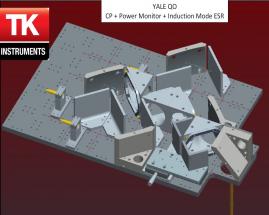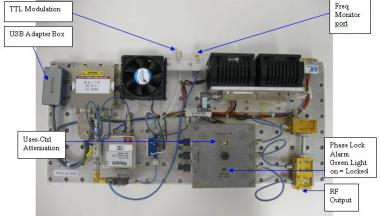By adding stable free radical relaxation agents to biological samples and then irradiating the electron spins, greatly enhanced nuclear polarization and thus NMR sensitivity can be achieved via several Dynamic Nuclear Polarization mechanisms. High power gyrotron mm-wave sources are usually employed to obtain signal enhancements that are routinely over 100-fold. Our lab is developing MAS DNP instrumentation to utilize microliter and smaller size samples. Since the required power decreases as the sample volume, it is possible with small samples to achieve large enhancements with low power sources. This has the advantage that sources with up to 60mW of power can be built with fast frequency, phase and amplitude modulation capabilities, opening up a wide range of new approaches to DNP. Our system is being powered by a VDI mm-wave amplifier multiplier chain at ~ 200 GHz, and will utilize fractional THz optics by Thomas-Keating Instruments. This development is motivated by applications to biological problems where dealing with much smaller samples will make feasible NMR study of many more mutants, and materials science applications where the surface specificity of the DNP enhancements will be an advantage in characterizing nanoscopic order.

